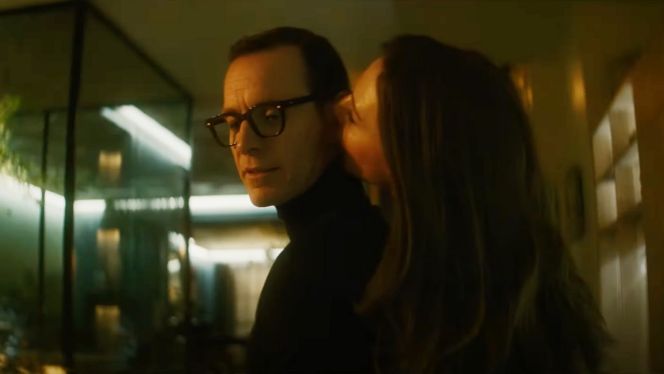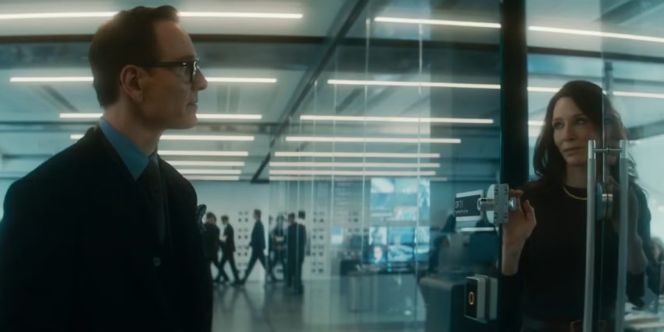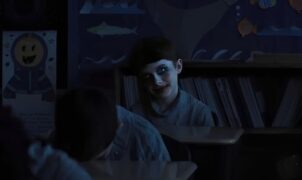MOVIE REVIEW – Black Bag is another intricate and finely crafted thriller from Steven Soderbergh, where Michael Fassbender and Cate Blanchett portray a married pair of spies torn between their job and their trust in one another. The film moves with taut precision, featuring witty and biting dialogue as it navigates the delicate balance between marriage and the espionage trade. This isn’t just an exercise in style—it’s a story where emotional hazards lurk around every corner and fidelity collides with paranoia in increasingly complex ways.
Steven Soderbergh and David Koepp join forces once again, picking up where they left off after the claustrophobic thriller KIMI and the unsettling Presence. Their latest work, Black Bag, skillfully blends the codes of spy fiction with the nuances of domestic drama. At its core lies a simple yet loaded setup: George Woodhouse (Michael Fassbender), a senior British intelligence officer, receives a lead about a mole within the agency, only to find his wife, Kathryn (Cate Blanchett), among the suspects. What follows is a sophisticated whodunit, rich with humor and tinged with the ever-present shadow of doubt, where the real question isn’t just about espionage, but about how much of ourselves we reveal to the people closest to us.
Dinner Party of Deception and Suspicion
The drama begins when George is presented with a list naming five possible informants, all of whom are somehow tied to the disappearance of Severus, a lethal surveillance program. Among those five: his own wife and four others who drift in and out of the circle at the National Cyber Security Centre. There’s the ambitious James Stokes (Regé-Jean Page) and his quick-witted psychiatrist partner Dr. Zoe Vaughn (Naomie Harris), plus the grizzled Freddie Smalls (Tom Burke) and his brash young lover Clarissa Dubose (Marisa Abela), who has little interest in keeping secrets.
George’s drive is deeply personal. He despises deception, especially in the context of marriage. His investigation is anything but conventional—at a dinner party where all five suspects gather, he seamlessly blends small talk and interrogation, bolstered by heavy pours of wine and perhaps something a bit stronger. This tense evening is laced with gallows humor, as each seemingly casual remark carries hidden barbs and every shared memory becomes a possible clue.
Of course, answers remain elusive. Over several days, George keeps returning to each relationship, carefully manipulating conversations to pry open the truth. The more he uncovers, the more it all points to Kathryn—an accusation he seems ill-prepared to accept. And that’s just the opening act. As the film unfurls, it dials up both absurdity and suspense, turning what looks like a classic spy caper into a biting, cleverly layered satire of marital secrets wrapped in the glamour of espionage.
High-Tech Spies in an Age of Screens
This time around, there are no daring rooftop pursuits or tuxedoed heroes trading quips in casinos. Soderbergh’s spies do their work from behind computer monitors and fluorescent lights, not with silenced pistols or stolen glances. It’s a world of quiet observation and deliberate calculation—no less thrilling for the lack of car chases. Their tools are keystrokes, keen eyes, and a knack for reading between the lines, wielded with cool and calculated precision.
At the heart of this controlled chaos is Fassbender, whose performance radiates tension beneath a polished surface. George begins as the perfect professional—unflappable, watchful, seemingly immune to doubt. But as the investigation deepens, cracks appear in his calm demeanor, and Fassbender shifts from icy to vulnerable with breathtaking subtlety. In those fleeting glances and measured words, the real drama of Black Bag takes hold—where the true danger might lie not in the enemy, but in the secrets we keep from those we love most.
Soderbergh’s Visual Symphony
Doubling as both cinematographer (as Peter Andrews) and editor (as Mary Ann Bernard), Soderbergh brings his signature mix of discipline and ease. Every scene unfolds with precise choreography, but always with the natural rhythm of human conversation, as if Robert Altman had teamed up with a meticulous craftsman. This balance of structure and looseness is what keeps the film so mesmerizing: it’s composed to the last frame, yet brims with life.
Visually, Black Bag shimmers with a moody, fog-like glow. Lamps cast smoky halos that sharpen the outlines of every movement, but never overpower the faces at the center of the drama. Soderbergh’s camera is unhurried, giving the ensemble cast room to inhabit their roles fully—especially Pierce Brosnan, who turns up in a deliciously understated cameo as George’s superior, exuding weary charm.
The final result is a sleek, cerebral drama that never loses sight of its human core. If Tinker, Tailor, Soldier, Spy was reimagined as a war of witty barbs between spouses, it might look a lot like Black Bag. The geopolitical intrigue fades into the background, allowing Soderbergh to zero in on the quiet violence of suspicion and the many ways people hide themselves from each other. This is one of his most rigorously constructed—and slyly entertaining—films in years, a slow-burn marvel that leaves no doubt about his mastery of the form.
-Gergely Herpai “BadSector”-
Black Bag
Direction - 8.4
Actors - 8.6
Story - 8.1
Visuals/Music/Sounds - 8.2
Ambience - 8.2
8.3
EXCELLENT
Black Bag channels the tensions of married life through the sleek prism of espionage. Steven Soderbergh delivers a whip-smart, stylishly executed spy tale centered on a couple whose trust is tested under surveillance-grade scrutiny. With its ensemble of three interlinked couples all hiding secrets, the film twists the screw on intimacy with impeccable precision—and leaves its audience delightfully unsettled.














![[TGA 2025] Star Wars: Galactic Racer Focuses on High-Stakes Podrace Runs [VIDEO]](https://thegeek.games/wp-content/uploads/2025/12/theGeek-Star-Wars-Galactic-Racer-300x365.jpg)



Leave a Reply